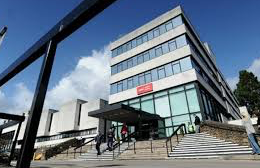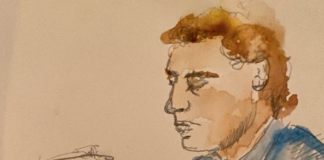- Dark speak easy part one - 18th February 2026
- X marks the spot again - 17th February 2026
- Wordy again part three - 16th February 2026

BBC Wales have refused to divulge any details of top taxpayer-funded salaries, while it has emerged that at a UK level a big name male presenter has resisted pressure to agree a cut to his pay of between £300,000 and £350,000, amid growing pressure over the corporation’s controversial decision to axe a long-running TV Current Affairs series, The Eye can disclose.
Eddie Mair has infuriated managers by not agreeing to a deal, yet others, including Huw Edwards who was born in Bridgend, has already done so.
But the BBC in Wales have given a blanket refusal.
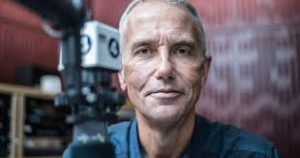
We were officially told by a BBC Wales spokesperson: “We are not going to offer a running commentary on BBC Wales presenters’ pay”.
Mr Mair is thought to be the last big name of BBC news yet to finalise a cut, and it has been reported the situation is complicating the corporation’s efforts to bring a semblance of order to salaries.

The corporation promised in January to draw up a new on-air pay framework, imposing clear and narrow salary bands, after dozens of female presenters claimed that they earned less than their male colleagues.
But the new policy has still not been published.
The publication of salaries last July caused a revolt by many BBC women and led to the resignation of Carrie Gracie as the China editor last January.
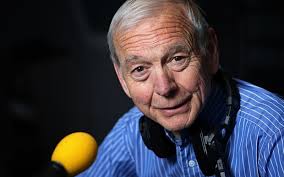
She accused the BBC of illegal pay discrimination.
Since then a host of male presenters have agreed reductions.
The BBC Radio 4 veteran John Humphrys, from Cardiff, has volunteered to take three cuts, reducing his salary from £600,000 to about £300,000.
His Today co-host Nick Robinson has also accepted a cut in salary, which is between £250,000 and £300,000.

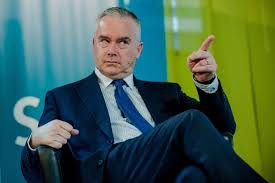
Along with them and Huw Edwards – Nicky Campbell, the Radio 5 host, Andrew Marr, the TV presenter, and Jeremy Vine, the Radio 2 host, have all agreed cuts.
Jon Sopel, the North America editor, has agreed a reduction in his £200,000 to £250,000 salary, even though the corporation reported his pay cut before it had been finalised.
Last year some of the BBC’s most high-profile female personalities wrote a frank open letter to the director general, Tony Hall, calling on him to “act now” and tackle the gender pay gap.
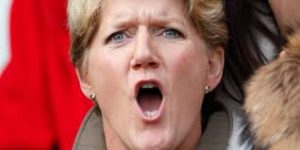
Household names including presenters Clare Balding, Victoria Derbyshire and Angela Rippon were among more than 40 women who used their “strong and loud voices” to urge him to “correct this disparity” over gender pay, which they say has been known within the corporation “for years”.
It came after documents setting out the pay for staff on more than £150,000 showed a sizeable gap in the earnings of the corporation’s most well-known male and female presenters and actors, with Radio 2 presenter Chris Evans topping the list on more than £2m, while the highest paid woman was Claudia Winkleman who presented a programme on BBC Radio and TV’s Strictly Come Dancing on £450,000-£499,999.
But it is a very different story in Wales where the BBC have refused to divulge any details at all.
The controversy is set against a disturbing backdrop.
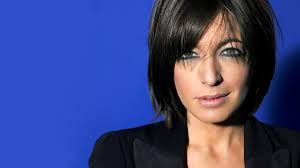
We showed how former executives and leading employees at the BBC Wales headquarters in Llandaff have condemned senior management there and strongly criticised the axing of a long-running television Current Affairs series.
The BBC Wales programme Week In, Week Out (WIWO) ended after 53 years, and was replaced by the label ‘BBC Wales Investigates’ on major stories.

The contentious move followed the troubling decisions to get rid of award-winning Current Affairs series on network television, such as World in Action and TV Eye on ITV and Rough Justice as well as Public Eye on the BBC.
“We can’t go on like this” one senior BBC figure told us.


“We seem to lurch from crisis to crisis.”
Another stated at the time: “That decision to get rid of WIWO (Week In, Week Out) is awful, especially when we are in the news anyway over this pay thing”.
WIWO had been running for more than half a century and won numerous awards in both Cardiff and London.

The Eye Editor Phil Parry, who presented the programme for more than 10 years from 1989, told WalesOnline: “It is absurd to suggest that putting a label on a story like ‘BBC Wales Investigates’ in any way compensates for getting rid of a regular weekly current affairs strand which had been going for many years, like Week In Week Out.
“It never works – they tried to say the same when they got rid of Public Eye on BBC 2.
“Public Eye Investigations was never heard of again.
“When you have a regular series, with a team of people who know each other, an ‘esprit de corps’ develops.

“You know who are the best ‘quick turnaround merchants’ and who are better to be left alone so they can work on longer investigations.”
The BBC have said there would be ‘new investment’ in programming, yet it became very difficult for accountants to quantify investigative Current Affairs.
Programme-makers could work on subjects for weeks or even months before it came to nothing, which cost money.
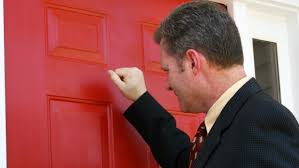
Despite this, critics say programmes like WIWO played a vital role in holding to account policy-makers.
Along with ‘not giving a running commentary’ on high salaries funded by the taxpayer, the decision to end the series may come back to haunt BBC Wales.
Next week – details of an angry letter to the Director of BBC Wales about the axing of WIWO, presenters’ pay and allowing a long-serving Wales Today presenter to leave for a controversial Turkish television station.
Check your knowledge of today’s events as revealed over the last few months on The Eye, with our brilliant interactive quiz: [viralQuiz id=1]








